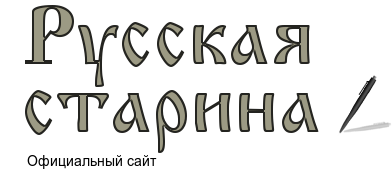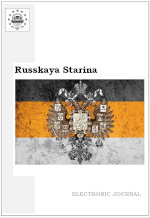Number 1. (in 1 part) June 25, 2014
Articles and Statements
1. Maiya Burdiashvili
Ivan Dzhavakhishvili – The Founding Father of the Georgian University
Number of views: 2127 Download in PDF
2. Tatiana P. KhlyninaAbstract:
Fortunately, there are people who leave a deep mark on the world’s history and the entire country’s social worldview and life. It is in their activity, the area they worked in that the entire epoch is reflected. Georgia’s history is full of such devoted and selfless heroes who place the country’s well-being and the people’s cultural development above anything else. Georgian historian, public figure, scholar, his homeland’s pride and worthy citizen Ivan Dzhavakhishvili was among such most estimable personalities.
Fortunately, there are people who leave a deep mark on the world’s history and the entire country’s social worldview and life. It is in their activity, the area they worked in that the entire epoch is reflected. Georgia’s history is full of such devoted and selfless heroes who place the country’s well-being and the people’s cultural development above anything else. Georgian historian, public figure, scholar, his homeland’s pride and worthy citizen Ivan Dzhavakhishvili was among such most estimable personalities.
Number of views: 2127 Download in PDF
Evacuation of Civilians and Material Values During the Great Patriotic War: Memory VS Document
Number of views: 2138 Download in PDF
3. Tat'yana G. KurbatAbstract:
Article is devoted to the perception of evacuation and its reflection in the Archive Fund. It discusses the features of eyewitnesses of the events 1941–1942. Opens the possibility of archival sources in understanding the logic of the disruption and measures of evacuation. Noted substantial mismatch personal and official sources of origin, analyzes their research capabilities.
Article is devoted to the perception of evacuation and its reflection in the Archive Fund. It discusses the features of eyewitnesses of the events 1941–1942. Opens the possibility of archival sources in understanding the logic of the disruption and measures of evacuation. Noted substantial mismatch personal and official sources of origin, analyzes their research capabilities.
Number of views: 2138 Download in PDF
“The Forgotten War” in the Interior of the “Times and Epochs” Military-Historical Festival: A New Life and Research Potential
Number of views: 2091 Download in PDF
4. Nikolai V. Mityukov, Lyudmila P. PortsevaAbstract:
This article is dedicated to the analysis of reconstructing World War I events through the “Times and Epochs” military-historical festival. It also examines the history of the making and development of the military-historical reconstruction movement in Russia.
This article is dedicated to the analysis of reconstructing World War I events through the “Times and Epochs” military-historical festival. It also examines the history of the making and development of the military-historical reconstruction movement in Russia.
Number of views: 2091 Download in PDF
Ministerial Campaigns: The “Izh” and “Shrapnel” Steamers
Number of views: 2168 Download in PDF
5. Lyudmila M. VolobuevaAbstract:
Based on archive documents and information from the periodical press, the author makes an attempt at reconstructing the biographies of the Izhevsk Pond steamers “Izh” and “Shrapnel”. The article is illustrated with archive drawings put into scientific circulation for the first time ever.
Based on archive documents and information from the periodical press, the author makes an attempt at reconstructing the biographies of the Izhevsk Pond steamers “Izh” and “Shrapnel”. The article is illustrated with archive drawings put into scientific circulation for the first time ever.
Number of views: 2168 Download in PDF
Nurseries for Infants during World War I
Number of views: 2028 Download in PDF
6. Abstract:
This article examines the process of creating nurseries for the children of soldiers on the front line of World War I. The purpose of these institutions was to look after children until objectives relating to bringing up and educating infants were resolved. The author provides materials that characterize the activity of public organizations in terms of creating nurseries, working out the content of work with children, and training pedagogical personnel. The article provides archive materials never published before, which contain information on measures for supporting families with little children which found themselves in a tough life situation. The organization of the activity of nurseries predetermined the need for further development of public pre-school bringing-up in Russia.
This article examines the process of creating nurseries for the children of soldiers on the front line of World War I. The purpose of these institutions was to look after children until objectives relating to bringing up and educating infants were resolved. The author provides materials that characterize the activity of public organizations in terms of creating nurseries, working out the content of work with children, and training pedagogical personnel. The article provides archive materials never published before, which contain information on measures for supporting families with little children which found themselves in a tough life situation. The organization of the activity of nurseries predetermined the need for further development of public pre-school bringing-up in Russia.
Number of views: 2028 Download in PDF







